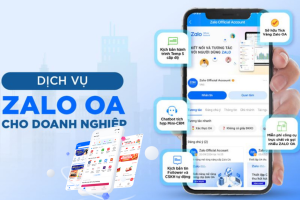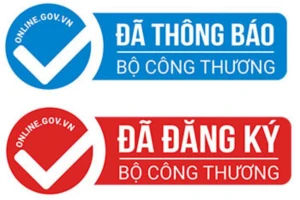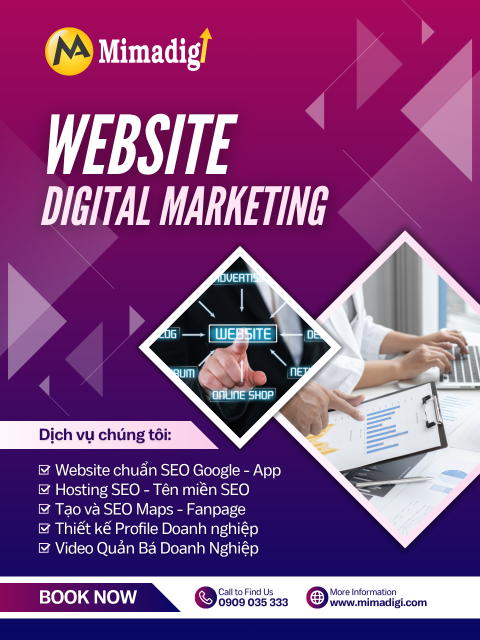What is AI Overview?
AI Overview is a feature developed by Google and integrated into the Search Engine Results Page (SERP) to provide users with quick and accurate summarized information powered by Artificial Intelligence (AI). Instead of displaying a list of links for users to browse through, AI Overview analyzes, synthesizes, and presents an “overview” of the topic right at the top of the search results. This marks a smart search trend that every business should pay attention to. Let’s MIMA explore how to optimize your content to appear in AI Overview and lead in the new SEO era!

AI Overview in Google Search Context
Google has continuously improved the search experience to meet the growing demand for speed and accuracy. AI Overview is considered a core part of the “AI-first” strategy that Google has been pursuing for years.
- Prominent placement on SERP: AI Overview appears at the very top of the search results page, before both organic links and ads, ensuring users see the summarized answer immediately.
- Integration of trusted sources: The content isn’t generated randomly but is aggregated from high-quality websites—especially those with SEO-friendly design and high authority in Google’s index.
- Optimized for user behavior: With this summary, users can minimize the need to visit multiple pages, which is especially useful for question-based queries or complex topics.
The key difference is that AI Overview doesn’t just display information—it understands the search context and delivers the most accurate and relevant answers to the user’s true intent.
How AI Overview Works
AI Overview operates through a combination of Large Language Models (LLMs) and Google’s traditional ranking systems. This mechanism ensures that the displayed content is not only correct but also highly relevant to the search query.
- Data collection and analysis: Google uses algorithms to select content from multiple reliable sources. Selection is based on quality factors such as accuracy, freshness, and website authority. Regularly updating your website, improving user experience, and following SEO best practices significantly increase the chances of being included in AI summaries.
- Understanding search context and intent: AI goes beyond keywords, analyzing context to understand user intent. For example, if someone searches “AI Overview in Google Search,” the system identifies the need for information about the feature, not AI in general.
- Generating a clear and concise summary: After analysis, AI creates a logically structured, easy-to-read summary that ensures accuracy without being too long or overwhelming.
Through this process, AI Overview delivers a faster, more convenient, and more reliable search experience compared to traditional link-based results.
Differences Between AI Overview and Traditional Search Results
Unlike traditional search results, which primarily list links accompanied by short descriptions, AI Overview provides a complete, synthesized answer from multiple trusted sources. This saves users time, especially when they’re seeking a comprehensive explanation of a topic or a quick summary.
Another key difference is AI Overview’s ability to understand context and user intent using advanced AI models. Traditional search results, on the other hand, rely heavily on keyword optimization and page SEO rankings. This shift signals Google’s move from a “list of sources” model to an “instant answer” model, enhancing user experience in the AI era.
How Does Google AI Suggest Content?
Behind every content suggestion that Google AI provides is a complex process involving vast data, deep learning models, and sophisticated optimization algorithms. The main goal is to deliver the most accurate, useful, and relevant answers based on real user intent.
AI doesn’t just rely on keywords—it analyzes search behavior, context, and content quality from millions of sources. Here’s how Google AI makes its content recommendations:

Algorithms and Training Data
Google AI is built on Large Language Models (LLMs) and advanced deep learning algorithms. These are designed to not only process data but also understand linguistic meaning, enabling natural and coherent answers.
- Rich data sources: AI is trained on massive datasets, including articles, websites, books, and scientific documents.
- Deep learning algorithms: These help AI identify language patterns, sentence structures, and semantic relationships between keywords.
- Continuous updates: The system is fine-tuned regularly to reflect the latest information, ensuring accuracy and freshness.
This foundation allows Google AI to deliver content recommendations almost instantly with high accuracy and quality.
How AI Understands and Evaluates Content
Understanding content is a critical step for Google AI to provide relevant suggestions. Instead of merely counting keyword occurrences, AI applies contextual analysis to grasp the real intent behind the query.
- Semantic analysis and search intent: AI identifies whether the user seeks a definition, comparison, or step-by-step guide.
- Content quality assessment: It evaluates credibility, depth, and freshness of the content before selection.
- Natural Language Processing (NLP): AI understands language nuances, detects hidden meanings, and filters out low-quality or duplicate content.
This process ensures Google AI not only provides relevant information but also prioritizes accuracy and usefulness.
Key Factors Influencing AI Recommendations
- Content quality: Google prioritizes trustworthy, authoritative sources, especially those that follow E-E-A-T principles (Experience, Expertise, Authoritativeness, Trustworthiness).
- Relevance to the search query: AI considers not just keywords but also the overall context to match user needs.
- User behavior and context: Google may personalize results based on search history or geographic location for greater accuracy.
Relationship Between User Query and AI Suggestions
Google AI recommendations are based on a deep understanding of the user’s search query. AI doesn’t just read the question—it interprets the intent behind it. For example, when someone searches “What is AI Overview?”, the AI knows the user likely wants a definition, benefits, and how it works, so it generates a concise, comprehensive summary along with links for more details.
Thanks to its ability to analyze context and intent, Google AI offers a smarter search experience, helping users access accurate information faster than traditional methods.
How to Optimize Content for Google AI Overview
To appear in Google AI Overview, your content must go beyond traditional SEO practices and meet Google’s AI-specific requirements. The goal is to make your content easy for AI to understand, extract, and trust—ultimately increasing its chances of being featured in the Overview section.
Here are the key strategies to optimize content for AI Overview:

Focus on User Search Intent
Understanding and satisfying user intent is crucial for inclusion in AI Overview.
- Analyze Search Intent: Determine whether users are seeking definitions, guides, comparisons, or solutions.
- Provide a Direct Answer: Place a concise response (2–4 sentences) at the beginning of your article for easy extraction by AI.
- Offer Multi-Level Detail: Follow up the short answer with in-depth explanations to keep readers engaged.
This approach improves both AI comprehension and user experience, leading to longer time-on-page.
Use Clear Structure and Proper Formatting
Google favors content that is logically organized and easy to parse.
- Use Hierarchical Headings (H1, H2, H3): Helps AI understand the structure and find relevant sections.
- Leverage Lists, Tables, and Bullet Points: Enhances readability and AI extraction.
- Add Step-by-Step Instructions: Especially effective for “How-to” or problem-solving content.
Well-structured content increases the likelihood of being selected for AI Overview.
Build Trust and Optimize User Experience (E-E-A-T)
Google prioritizes sources that demonstrate Experience, Expertise, Authoritativeness, and Trustworthiness (E-E-A-T).
- Provide Accurate Information: Cite reputable sources and data.
- Show Expertise: Include author credentials or company background.
- Optimize Website UX: Ensure fast loading speed, mobile responsiveness, and minimal intrusive ads.
Keep Content Fresh and Use Natural Language
Google prefers updated and easy-to-read content.
- Update Regularly: Especially important for fast-changing topics like tech, health, and finance.
- Write in Natural Language: Avoid overly technical jargon—keep it conversational and accessible.
When content is accurate, user-friendly, and current, it stands a better chance of being chosen by Google AI.
10-Step Checklist to Optimize for AI Overview
| Step | Action | Why It Matters |
|---|---|---|
| 1 | Analyze user search intent | Ensures the content answers real user needs |
| 2 | Write a short, direct answer at the start (2–4 sentences) | Easy for AI to extract and display in Overview |
| 3 | Use clear headings (H1, H2, H3) | Helps Google understand content hierarchy |
| 4 | Include lists, tables, and step-by-step guides | Improves readability and AI parsing |
| 5 | Add schema markup (FAQ, HowTo, Article) | Gives AI structured data for better understanding |
| 6 | Demonstrate E-E-A-T (trust signals) | Boosts credibility and ranking potential |
| 7 | Optimize page speed and mobile-friendliness | Enhances UX and reduces bounce rate |
| 8 | Increase user engagement (dwell time, clicks) | Signals quality to Google |
| 9 | Use natural, easy-to-read language | Helps both AI and readers understand |
| 10 | Regularly update content | Google favors fresh, accurate information |
SEO Trends and Strategies in the AI Era
The AI era has revolutionized how Google searches and displays information, bringing major shifts in SEO strategies. Businesses and content creators can no longer rely solely on traditional keyword and backlink optimization—they must adapt to a smart search environment where AI plays a central role in aggregating and recommending content.
To stay ahead, SEO strategies must evolve to meet new criteria: focusing on quality, usefulness, and AI interpretability.

Traditional SEO vs. AI-Driven SEO
- Before: Keyword optimization and link-building dominated the ranking game.
- Now: AI prioritizes in-depth, trustworthy, and structured content, with the ability to understand context and intent.
- Future: SEO will be driven by user experience, structured data, and behavioral signals (dwell time, CTR).
The biggest shift is that Google no longer just reads keywords—it understands intent. Content creators must transition from “algorithm-focused” strategies to “user-focused strategies powered by AI.”
High-Quality Content: The Foundation of AI SEO
In the AI era, “Content is King” remains true—but quality now includes:
- Meeting Search Intent: Provide direct, concise answers to user queries.
- Ensuring Credibility (E-E-A-T): Showcase expertise, cite reliable sources, and maintain accuracy.
- Clear Structure for Easy Extraction: Use proper headings, bullet points, and tables so AI can process your content effectively.
Future content strategies will prioritize delivering real value instead of keyword stuffing or over-technical optimization.
The Role of Structured Data (Schema)
Schema markup is becoming essential for helping Google understand your content. It’s the way to “talk to AI” through structured data. Using schema types like FAQPage, HowTo, or Article makes your content easier to analyze and extract for AI Overview and improves visibility in rich results.
Integrating schema from the beginning (during website design) ensures consistency and maximizes SEO performance. Schema also enhances Semantic SEO, allowing search engines to understand relationships between content elements, boosting relevance and accuracy.
The Future of AI Overview and Smart Search
AI Overview will become more prevalent, significantly impacting how users access information. While it challenges traditional SEO, it creates opportunities for those who adapt early.
Future expectations:
- Greater Personalization: AI will tailor results based on user behavior, location, and search history.
- Multimedia Integration: AI Overview will incorporate images, videos, and charts for richer answers.
- AI-First SEO Optimization: Content must be AI-friendly—structured, clear, and frequently updated.
These changes demand flexible SEO strategies focused on semantics, quality, and user experience, rather than just keyword rankings.
Top 10 Frequently Asked Questions (FAQ)
1. What is Google AI Overview?
It’s a Google feature that uses AI to create instant summaries at the top of search results, allowing users to get key information without clicking multiple pages.
2. How does Google AI Overview work?
It aggregates data from trusted sources, analyzes user intent, and generates concise, accurate summaries using AI models.
3. How is AI Overview different from traditional search results?
AI Overview delivers complete answers directly, while traditional search lists links for users to explore.
4. Why is AI Overview important for SEO?
It may reduce organic traffic to regular pages, but if your content gets featured, it increases brand authority and CTR.
5. How to make your content appear in AI Overview?
- Provide direct answers at the top of your article
- Use clear headings (H1, H2, H3)
- Apply schema markup (FAQ, HowTo)
- Ensure E-E-A-T (Expertise, Trustworthiness)
- Keep content updated regularly
6. Does schema affect AI Overview?
Yes. Schema markup helps Google interpret and extract content for AI Overview more efficiently.
7. What type of content gets featured in AI Overview?
In-depth, well-structured, clear, and frequently updated content with natural language.
8. What is E-E-A-T, and why does it matter?
Experience, Expertise, Authoritativeness, Trustworthiness—Google values content that reflects these attributes, especially in AI Overview.
9. Will AI Overview affect website traffic?
Yes. Some clicks may drop, but if your content is cited, you can gain quality traffic and stronger brand trust.
10. What’s the future of SEO in the AI era?
SEO will shift to semantic optimization, user experience, and structured data. High-quality, intent-driven content will be key for AI visibility.
Comprehensive SEO Services – Sustainable Google Ranking for Your Business
At MIMA, we go beyond just building websites—we accompany businesses throughout their comprehensive SEO journey, helping you establish a strong foundation and achieve sustainable growth on Google.
We specialize in custom full-package website design, with a commitment to:
- Attractive, user-friendly interfaces for an enhanced experience
- SEO-ready structure and optimized content
- 100% responsive design for full mobile compatibility
- Fast loading speed to keep users engaged
- Integrated contact forms, Google Maps, and lead capture tools
How MIMA Helps Your Business Reach the Right Customers:
- In-depth keyword, market, and competitor analysis
- Content, image, speed, and technical optimization
- Tailored SEO strategies based on your industry and goals
- Continuous campaign monitoring, measurement, and adjustments
Contact Information
- MIMA Trading & Service Co., Ltd
- Tax ID: 0318672839
- Address: 31/3B, Hamlet 43, Dong Thanh Commune, Ho Chi Minh City
- Hotline: 0909 035 333
- Email: info@mimadigi.com
- Website: https://mimadigi.com/


























Share your review